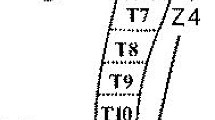Abstract
Purpose
This study aims to identify independent factors correlating to an increased risk of perioperative stroke during thoracic endovascular aortic repair (TEVAR).
Methods
A prospective maintained TEVAR database, medical records, and imaging studies of 300 patients (205 men; median age of all, 66 years, range 21–89), who underwent TEVAR between March 1997 and February 2011, were reviewed. Preoperative CT data sets were reviewed by two experienced radiologists with focus on the atheroma burden in the aortic arch (grade I, normal, to grade V, ulcerated or pedunculated atheroma). Aortic arch geometry (arch types I–III) was documented. Further parameters included in the univariate analysis were age, gender, urgency of repair, duration of procedure, adenosine-induced cardiac arrest or rapid pacing, proximal landing zone, left subclavian artery (LSA) coverage, and number of stent grafts. Multivariate logistic regression analysis was performed to assess the independent correlations of potential risk factors.
Results
Atherosclerotic aneurysm was the most common pathology (44 %). One hundred and fifty-four of our patients (51 %) were treated under urgent or emergent conditions. Seventeen percent of all patients had significant arch atheroma (grade IV or V), and 43 % had a steep type III aortic arch. The perioperative stroke was 4 % (12 patients; median age, 73 years, range 31–78). Two strokes were lethal (0.7 %). All strokes were classified as embolic based on imaging characteristics. In eight patients, strokes were located in the left cerebral hemisphere (seven of them in the anterior and one in the posterior circulation). Four stroke patients (one in the left posterior circulation) underwent LSA coverage without revascularization. Three stroke patients had severe arch atheroma grade V. Five patients suffering stroke were recognized to have a type III aortic arch. Strokes were equally distributed between zones 0–2 vs. 3–4 (n = 6 each, 5 vs. 3.3 %). The highest incidence was found in zone 1 (11.4 %). In univariate analysis, grade V arch atheroma (odds ratios (OR), 5.35; 95 % confidence intervals (CI), 1.00–25.87; P = 0.035) and zone 1 deployment (OR, 5.03; 95 % CI, 1.19–20.03; P = 0.021) were significantly associated with perioperative stroke. In multivariate analysis, both parameters were confirmed as independent significant risk factors for stroke during TEVAR.
Conclusions
Stroke risk during TEVAR is directly associated with the atheroma burden of the aortic arch and the proximal landing zone. These factors should be considered during patient selection, planning, and implantation strategies of TEVAR.


Similar content being viewed by others
References
Leurs LJ, Bell R, Degrieck Y, Thomas S, Hobo R (2010) Endovascular treatment of thoracic aortic diseases: combined experience from the EUROSTAR and United Kingdom Thoracic Endograft registries. J Vasc Surg 40:670–679
Gopaldas RR, Huh J, Dao TK, LeMaire SA, Chu D, Bakaeen FG et al (2010) Superior nationwide outcomes of endovascular versus open repair for isolated descending thoracic aortic aneurysm in 11,669 patients. J Thorac Cardiovasc Surg 140:1001–1010
Milewski RK, Szeto WY, Pochettino A, Moser GW, Moeller P, Bavaria JE (2010) Have hybrid procedures replaced open aortic arch reconstruction in high-risk patients? A comparative study of elective open arch debranching with endovascular stent graft placement and conventional elective open total and distal aortic arch reconstruction. J Thorac Cardiovasc Surg 140:590–597
Melissano G, Tshomba Y, Bertoglio L, Rinaldi E, Chiesa R (2012) Analysis of stroke after TEVAR involving the aortic arch. Eur J Vasc Endovasc Surg 43:269–275
Gutsche JT, Cheung AT, McGarvey ML, Moser WG, Szeto W, Carpenter JP, Fairman RM, Pochettino A, Bavaria JE (2007) Risk factors for perioperative stroke after thoracic endovascular aortic repair. Ann Thorac Surg 84:1195–1200
Buth J, Harris PL, Hobo R, van Eps R, Cuypers P, Duijm L, Tielbeek X (2007) Neurologic complications associated with endovascular repair of thoracic aortic pathology: incidence and risk factors. A study from the European Collaborators on Stent/Graft Techniques for Aortic Aneurysm Repair (EUROSTAR) registry. J Vasc Surg 46:1103–1110
Feezor RJ, Martin TD, Hess PJ, Klodell CT, Beaver TM, Huber TS, Seeger JM, Lee WA (2007) Risk factors for perioperative stroke during thoracic endovascular aortic repairs (TEVAR). J Endovasc Ther 14:568–573
Cooper DG, Walsh SR, Sadat U, Noorani A, Hayes PD, Boyle JR (2009) Neurological complications after left subclavian artery coverage during thoracic endovascular aortic repair: a systematic review and meta-analysis. J Vasc Surg 49:1594–1601
Clough RE, Modarai B, Topple JA, Bell RE, Carrell TW, Zayed HA, Waltham M, Taylor PR (2011) Predictors of stroke and paraplegia in thoracic aortic endovascular intervention. Eur J Vasc Endovasc Surg 41:303–310
Böckler D, Schumacher H, Ganten M, von Tengg-Kobligk H, Schwarzbach M, Fink C, Kauczor HU, Bardenheuer H, Allenberg JR (2006) Complications after endovascular repair of acute symptomatic and chronic expanding Stanford type B aortic dissections. J Thorac Cardiovasc Surg 132:361–368
Casserly IP, Kapadia SR (2005) Advances in percutaneous valvular intervention. Expert Rev Cardiovasc Ther 3:143–158
Ishimaru S (2004) Endografting of the aortic arch. J Endovasc Ther 11:II62–II71
Kotelis D, Geisbüsch P, Hinz U, Hyhlik-Dürr A, von Tengg-Kobligk H, Allenberg JR, Böckler D (2009) Short and midterm results after left subclavian artery coverage during endovascular repair of the thoracic aorta. J Vasc Surg 50:1285–1292
van Swieten JC, Koudstaal PJ, Visser MC, Schouten HJ, van Gijn J (1988) Interobserver agreement for the assessment of handicap in stroke patients. Stroke 19:604–607
Bonati LH, Fraedrich G, Carotid Stenting Trialists’ Collaboration (2011) Age modifies the relative risk of stenting versus endarterectomy for symptomatic carotid stenosis—a pooled analysis of EVA-3S, SPACE and ICSS. Eur J Vasc Endovasc Surg 41:153–158
Kotelis D, Geisbüsch P, Attigah N, Hinz U, Hyhlik-Dürr A, Böckler D (2011) Total vs hemi-aortic arch transposition for hybrid aortic arch repair. J Vasc Surg 54:1182–1186
Conflicts of interest
None.
Author information
Authors and Affiliations
Corresponding author
Rights and permissions
About this article
Cite this article
Kotelis, D., Bischoff, M.S., Jobst, B. et al. Morphological risk factors of stroke during thoracic endovascular aortic repair. Langenbecks Arch Surg 397, 1267–1273 (2012). https://doi.org/10.1007/s00423-012-0997-6
Received:
Accepted:
Published:
Issue Date:
DOI: https://doi.org/10.1007/s00423-012-0997-6




